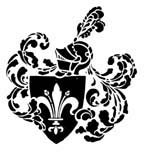
The Effect of Divine Grace on the Human Intellect
AN INTERVIEW WITH ANTHONY RIZZI
Anthony Rizzi is an accomplished physicist with over 35 years’ worth of experience in the field. His doctoral dissertation for Princeton University solved one of the major problems in modern physics by providing a way by which angular momentum could be defined within the theory of general relativity. He has taught at several universities and specializes in gravity wave research. He has also worked for the Laser Interferometer Gravitational-Wave Observatory project, which won the Nobel Prize in 2017, and at Lockheed Martin, where he served as a staff physicist and design engineer and received the NASA award for his work on various planetary experiments for exploration crafts.
Dr. Rizzi also has an extensive background in the philosophy of Aristotle and St. Thomas Aquinas, which he sees as essential for saving our failing culture by understanding and grounding contemporary science and all our thinking. He has authored numerous works on this critical issue, among them The Science Before Science: A Guide to Thinking in the 21st Century (2004), and he is the founder and director of the Institute for Advanced Physics (iapweb.org), an organization “established to advance modern science in a balanced fashion that does not leave behind the correct philosophical foundations, nor the proper moral and spiritual components.”
In the following interview, Rizzi comments on an article of his published in Divinitas, as well as aspects of his work out of which it arose.
NOR: You wrote an article asking, “Does Grace Help You Think Better?” Is there something about Christianity that affects the way humans think?
You May Also Enjoy
Paul VI was arguably the most influential — and assailed — Catholic of the 20th century. His impact on the Church was unparalleled, due to the time of his reign.
A university education should be about learning to think. It will be disquieting, perhaps troubling. It might even be infuriating. And that’s as it should be.
Our morally bankrupt political leaders lie for a living and call it the “fact-checked” truth.

